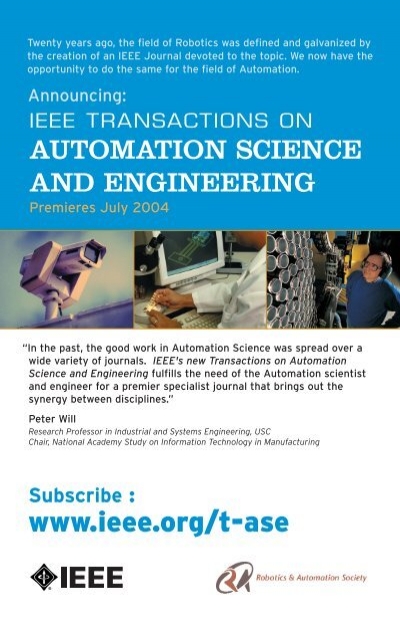共享AVPC系统中智能停车交通预测与资源优化的平台中心框架
IF 6.4
2区 计算机科学
Q1 AUTOMATION & CONTROL SYSTEMS
IEEE Transactions on Automation Science and Engineering
Pub Date : 2025-09-26
DOI:10.1109/TASE.2025.3614684
引用次数: 0
摘要
为了解决私人车主和临时用户停车行为的不确定性以及共享停车与电动汽车(EV)充电集成的复杂性所带来的挑战,本文提出了一种新的以平台为中心的共享自动代客停车和充电(AVPC)系统智能框架。该框架利用长短期记忆(LSTM)和深度强化学习(DRL)分别优化停车交通预测和资源分配。具体而言,为了减轻车辆停放和电动汽车充电需求和供应的不确定性,我们利用LSTM预测模型预测停车位所有者(o用户)和临时用户(r用户)的平均到达时间、离开时间和服务价格。然后,我们设计了一种改进的基于近端策略优化(PPO)的大热身训练算法,该算法将LSTM预测结果与来自o用户和r用户的实时供需信息相结合,以确定共享AVPC的最优资源分配。使用真实停车数据集进行的大量模拟表明,LSTM模型对0用户和r用户的停车流量预测的平均绝对百分比误差(MAPE)分别为1.71%和0.08%。此外,与最先进的方法相比,基于lstm - ppo的方法可将平台利润和停车资源利用率分别提高至少9%和15%。智能交通系统(ITS)在城市规划中面临着越来越严峻的挑战,特别是在管理自动驾驶汽车和共享AVPC系统有限的停车和电动汽车充电资源方面。本文提出了一个基于lstm的预测和基于drl的资源分配相结合的智能框架,用于共享AVPC系统的动态停车需求和电动汽车充电协调。与传统的基于规则的方法不同,我们的解决方案从停车管理平台的角度,在优化运营效率和用户便利性的同时,适应实时停车位供需波动。通过使用真实数据集进行验证,该框架可以很容易地部署在智慧城市、物流中心和商业综合体中,以缓解拥堵,最大化停车收入,并实现电动汽车充电基础设施的无缝集成。其自动化决策能力最大限度地减少了运营开销,为现代城市停车和交通挑战提供了可扩展的解决方案。管理智能停车系统、移动平台和基础设施的从业者可以利用这一框架来实现停车和电动汽车充电资源分配的自动化,优化停车资源定价,并以最少的人工监督提高停车资源利用率。本文章由计算机程序翻译,如有差异,请以英文原文为准。
A Platform-Centric Framework for Intelligent Parking Traffic Prediction and Resource Optimization in Shared AVPC Systems
To address the challenges posed by uncertainties in the parking behaviors of private owners and temporary users, as well as the complexities involved in integrating shared parking with Electric Vehicle (EV)-charging, this paper proposes a novel platform-centric intelligent framework for shared Automated Valet Parking and Charging (AVPC) systems. The framework leverages Long Short-Term Memory (LSTM) and Deep Reinforcement Learning (DRL) to optimize both parking traffic prediction and resource allocation, respectively. Specifically, to mitigate uncertainties in vehicle parking and EV-charging demand and supply, we utilize an LSTM prediction model to forecast the average day-ahead arrival times, departure times, and service pricing for parking space owners (O-users) and temporary users (R-users). Then, we design an improved Proximal Policy Optimization (PPO)-based algorithm with large warm-up training steps that integrates the LSTM prediction results with real-time supply and demand information from O-users and R-users to determine optimal shared AVPC resource allocation. Extensive simulations using real-world parking datasets demonstrate that the LSTM model achieves an average Mean Absolute Percentage Error (MAPE) of 1.71% and 0.08% for O-users and R-users’ parking traffic predictions, respectively. Additionally, the proposed LSTM-PPO-based approach improves platform profit and parking resource utilization by at least 9% and 15%, respectively, compared with state-of-the-art. Note to Practitioners—Intelligent Transportation Systems (ITS) are increasingly facing critical challenges in urban planning, especially in managing limited parking and EV-charging resources for autonomous vehicles and shared AVPC systems. This paper addresses these challenges by proposing an intelligent framework that combines LSTM-based prediction and DRL-based resource allocation for dynamic parking demand and EV-charging coordination in shared AVPC systems. Unlike traditional rule-based methods, our solution adapts to real-time parking space supply-demand fluctuations while optimizing for both operational efficiency and user convenience, from the perspective of the parking management platform. Validated using real-world datasets, the framework is readily deployable in smart cities, logistics hubs, and commercial complexes to alleviate congestion, maximize parking revenue, and enable the seamless integration of EV-charging infrastructure. Its automated decision-making capability minimizes operational overhead, offering a scalable solution for modern urban parking and mobility challenges. Practitioners managing smart parking systems, mobility platforms, and infrastructures can leverage this framework to automate parking and EV-charging resource allocation, optimize parking resource pricing, and improve parking resource utilization with minimal manual oversight.
求助全文
通过发布文献求助,成功后即可免费获取论文全文。
去求助
来源期刊

IEEE Transactions on Automation Science and Engineering
工程技术-自动化与控制系统
CiteScore
12.50
自引率
14.30%
发文量
404
审稿时长
3.0 months
期刊介绍:
The IEEE Transactions on Automation Science and Engineering (T-ASE) publishes fundamental papers on Automation, emphasizing scientific results that advance efficiency, quality, productivity, and reliability. T-ASE encourages interdisciplinary approaches from computer science, control systems, electrical engineering, mathematics, mechanical engineering, operations research, and other fields. T-ASE welcomes results relevant to industries such as agriculture, biotechnology, healthcare, home automation, maintenance, manufacturing, pharmaceuticals, retail, security, service, supply chains, and transportation. T-ASE addresses a research community willing to integrate knowledge across disciplines and industries. For this purpose, each paper includes a Note to Practitioners that summarizes how its results can be applied or how they might be extended to apply in practice.
 求助内容:
求助内容: 应助结果提醒方式:
应助结果提醒方式:


